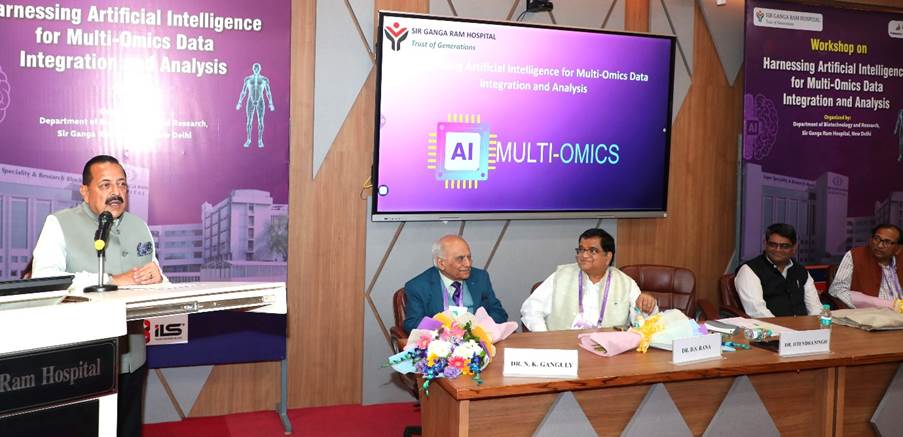India has developed its first indigenously discovered antibiotic, Nafithromycin, marking a significant milestone in the country’s pursuit of self-reliance in the pharmaceutical and biotechnology sectors. The antibiotic, effective against resistant respiratory infections, is particularly beneficial for cancer patients and those with poorly controlled diabetes.
Announcing the development on Saturday, Union Minister of State (Independent Charge) for Science and Technology, Dr Jitendra Singh, said the molecule is the first to be entirely conceptualised, developed and clinically validated in India. The breakthrough was achieved through a collaboration between the Department of Biotechnology and private pharmaceutical company Wockhardt.
Dr Singh described the success as a model example of industry-academia partnership and emphasised the need for India to build a self-sustaining innovation ecosystem that encourages private sector participation and philanthropic funding. This, he said, would help reduce dependence on government support and enhance India’s position in global research and innovation.
The minister was speaking at the inauguration of a three-day medical workshop on “Harnessing Artificial Intelligence for Multi-Omics Data Integration and Analysis” in the national capital.
He also highlighted another major scientific achievement — a successful indigenous clinical trial for gene therapy in the treatment of Hemophilia. Supported by the Department of Biotechnology, the trial was conducted at Christian Medical College, Vellore. The therapy recorded a 60 to 70 percent correction rate with zero bleeding episodes, he said, adding that the findings have been published in the *New England Journal of Medicine*.
India has already sequenced over 10,000 human genomes and aims to expand this number to one million in the coming years, he added.
Referring to the recently established Anusandhan National Research Foundation (ANRF), Dr Singh said the initiative, with an outlay of ₹50,000 crore over five years—including ₹36,000 crore from non-government sources—represents a paradigm shift in India’s research and development funding strategy. The foundation aims to deepen public-private partnerships in scientific research.
Dr Singh also spoke on the transformative role of Artificial Intelligence in healthcare, governance and public service delivery. He cited the deployment of AI-based hybrid mobile clinics in remote regions and an AI-driven grievance redressal system developed by the Department of Administrative Reforms and Public Grievances (DARPG), which now achieves a weekly disposal rate of 97 to 98 percent.
He commended institutions such as Sir Ganga Ram Hospital for pioneering interdisciplinary healthcare models by integrating AI, biotechnology and genomics to improve patient outcomes. He urged greater collaboration among government departments, private hospitals and research institutions to realise the vision of Viksit Bharat by 2047.
India, he said, is entering a new era of self-reliance in biotechnology, AI and genomic medicine. The convergence of innovation, collaboration and compassion will define the country’s journey towards becoming a developed nation and a global leader in science and technology.














